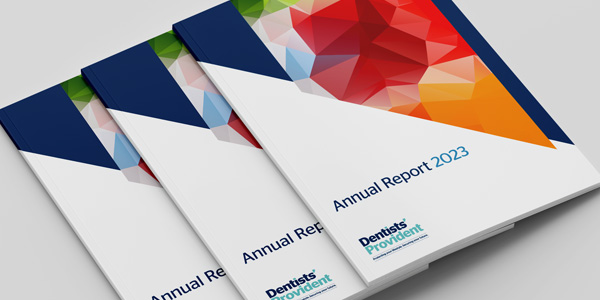
Sugar is considered by many as an enemy in our western diet and oral health is not the only door it’s knocking on – nor is it solely the wellbeing of patients it has in its sights. It is a contributing factor to diabetes and we all need to be aware of its impact.
The International Diabetes Federation (IDF) has indicated that more than 371 million people worldwide have diabetes and this figure is predicted to rise to over 550 million by 2030. Type 2 diabetes, which makes up 90% of all diabetes cases worldwide, used to occur mainly in adults over 40. However, it is now becoming more common in younger people and this increase has been linked with climbing levels of obesity.
Even though the most overwhelming risk factor for type 2 diabetes is a family history of it, there are a variety of everyday risk factors which could increase the chances of developing the condition. These include being overweight, a sedentary lifestyle and a bad diet.
Many people diagnosed with type 2 diabetes never suspect they have the condition, as they fail to recognise the early warning signs, or perhaps don’t have any symptoms at all. In fact, the majority of people are diagnosed ‘by accident’ while undergoing routine tests. But early diagnosis is key to its successful management, so we all need to be aware of the symptoms and risk factors.
Time bomb
Evidence shows that, as a nation, we are increasingly becoming more overweight, and because of that we are experiencing the associated diseases, such as type 2 diabetes, strokes and heart disease; we are effectively becoming ticking health time bombs. In fact, the World Health Organization’s (WHO) draft guideline proposes that sugars should be less than 10% of our total energy intake per day. It further suggests that a reduction to below 5% of our total energy intake per day would have even more benefits. When finalised, this guideline will provide recommendations on limiting the consumption of sugars, to reduce obesity and dental caries.
It’s no surprise that diabetes hits the headlines on a weekly basis. There are 3.2 million people diagnosed with diabetes in the UK and an estimated 630,000 people who have the condition, but don’t know it.
Well aware
As dentists, you are well aware of the impact type 2 diabetes has on periodontal disease, and the risks of sugar to patients’ oral health – as well as its effect on their overall health and wellbeing. As Public Health England’s Delivering Better Oral Health: an evidence-based toolkit (DBOH) reminds us: ‘Lowering the amount and frequency of sugars consumed will have wider health benefits, preventing weight gain and obesity which in turn will reduce the risk of heart disease, type 2 diabetes and some cancers.’
Indeed, diabetic patients arrive in the dentist’s chair with their own set of clinical challenges and, as health care professionals, it is as important to help these patients manage their diets to control any negative impact the disease has on their periodontal status, as it is to help every patient assess their sugar intake.
Dentists are on the frontline for diabetes screening and, by offering a vital health monitoring service to patients, you could add value to their visit.
A feasibility study, published in 2012, not only concluded that blood glucose testing (BGT) was well received by the majority of its patient and practitioner participants, it also suggested that improved diagnosis and control of diabetes may be achieved through its implementation. Interestingly, of those patients who took part 62% were ‘more likely to recommend their dentist to others if BGT was offered’.
The DBOH document also suggests that clinicians offer dietary advice and practical help to patients in an attempt to promote good oral and general health. It suggests dentists invite patients to keep a diet diary to share in future appointments. The toolkit even offers a diary template (to include food and drink type, time and frequency) that aims to help illustrate risk factors and help dentists to advise their patients how best to improve their diet.
Add weight
Numerous studies add weight to the approach of dentists promoting good general as well as oral health. Preshaw et al, 2012 explain that ‘periodontitis is increased by approximately threefold in people with diabetes’. Their research found ‘emerging evidence to support the existence of a two-way relationship between diabetes and periodontitis, with diabetes increasing the risk for periodontitis, and periodontal inflammation negatively affecting glycaemic control’. The effective model of integrated healthcare and shared responsibility is key here. Cardiologist, Dr Aseem Malhotra, science director of Action on Sugar, a group made up of like-minded health specialists concerned with sugar and its effects on health, notes: ‘Evidence now reveals that one sugary drink per day is associated with an increased risk (22%) of type 2 diabetes – even in the non-obese’.
Borderline
But busy lifestyles and erratic work patterns make us all susceptible to snacking and high sugar diets – even dentists are not immune. In fact, stress, which is common in the profession, could also lead you to developing type 2 diabetes, according to some studies. Scientific research, published in 2010, reviewed this possibility and concluded that: ‘In general, the research findings described in this review support the notion that different forms of emotional stress are associated with an increased risk for the development of type 2 diabetes, particularly depression, general emotional stress, anxiety, anger/hostility and sleeping problems.’ So many of us could in fact be in a borderline state and be unaware of that fact.
Pre-diabetes
Pre-diabetes – or borderline diabetes – is the state in which some, but not all, of the diagnostic criteria for diabetes are met, and precedes diabetes. By simply losing a bit of weight, quitting smoking, having a healthy balanced diet and increasing their physical exercise; people with pre-diabetes could reverse the condition and reduce their chances of developing type 2 diabetes, by up to 60 per cent.
As there are an estimated 630,000 people in the UK who have type 2 diabetes, but don’t know it, the sooner they can be identified, the sooner they can start getting the support they need to manage the condition. One way of doing this is by having an NHS Health Check that invites adults in England, aged 40 to 74, without a pre-existing condition, to have a health assessment that aims to identify those at risk of serious, but potentially avoidable, conditions. With the prevalence of diabetes at an all-time high, the benefits could be significant.
A case reported by Bryan Gross, head of claims and underwriting at Dentists’ Provident, confirms how easy it is to miss a trick with your own health. He says: ‘A dentist applying to us was recently diagnosed as diabetic by his GP after he was discovered to have raised blood glucose during our standard medical screening. He has been prescribed medication and is now having his glucose levels monitored to regain control of his blood glucose levels.’
Sweet news
So, next time you grab a guilty can of ‘something fizzy’ or a cheeky foil-wrapped ‘sweet something’, remember it’s not just your oral health which is at risk.
The good news is that a healthy lifestyle can help to improve or prevent type 2 diabetes. Andrew Wilson is a dietitian and health coach and suggests that a few simple tweaks can make all the difference: ‘Cut your sugar intake by half; stay hydrated to prevent overeating, aid concentration and boost energy levels; shop with a list, and beware of those fat-free or low-fat labels.’
References available on request.
This article is intended for information only. It is not designed to give financial or medical advice, nor is it intended to make any recommendations of the suitability of our plans for a particular individual. Full details of our contract can be found in our rules on our website www.dentistsprovident.co.uk. Dentists’ Provident Society Limited does not accept liability and responsibility for changes made to this information. Some of the information in this article has been obtained from third parties. While we believe the information to be reliable; we make no representations as to its accuracy and accept no responsibility or liability for any error, omission or inaccuracy in the data supplied by any third party.
If you have any questions, please contact our member services consultants by emailing press@dentistsprovident.co.uk or calling 020 7400 5710.
If you have any questions, please contact our member services consultants by emailing
memberservices@dentistsprovident.co.uk or calling 020 7400 5710.

Our 2024 Annual General Meeting will be held at 91-94 Saffron Hill, London, EC1N 8QP on Friday 24th Ma…
Read more
The 2023 annual report from Dentists’ Provident, a leading income protection provider for dental profe…
Read more
Our next exhibition is the British Dental Conference & Dentistry Show in May, where we look forward to meeting anyone interested in becoming a member or members wanting to discuss their plans.